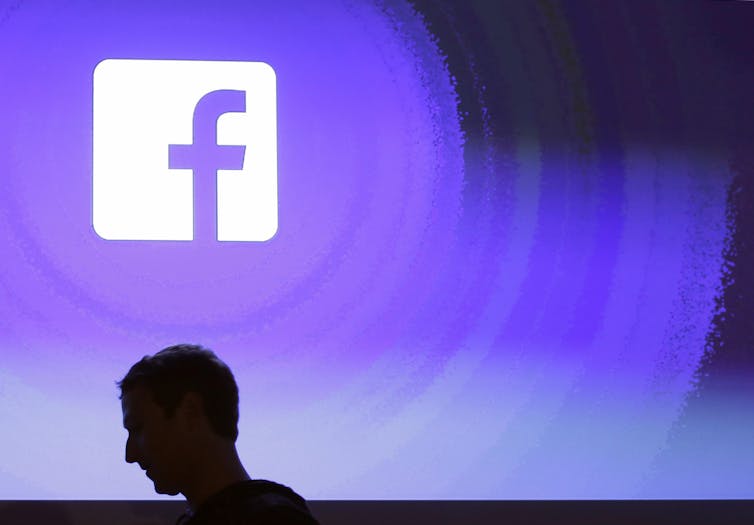Our ongoing love-hate relationship with personality tests
Published: April 6, 2018
The public backlash against and Facebook centres on their practices of harvesting psychological data to influence political behaviour. But this is not the first time corporations have used personality tests for their own gains.
Personality tests have long captured the North American imagination, both as objects of fascination and . Even as my own research encourages skepticism towards personality tests, I take all those online quizzes: Which Harry Potter house do you belong to? Are you an introvert or an extrovert? These tests promise to reveal to us truths about ourselves, at the same time as they entertain us.
This preoccupation has turned psychological tests into flashpoints for cultural anxieties about psychology, privacy and corporations. Two issues in the history of corporate psychological testing – the privacy of personal information and its political use – stand out.
Privacy & personality: The longer history
In the 1920s and 1930s, to measure an individual’s attitudes and emotions. They marketed the tests to corporations as tools to analyze the personalities of workers, consumers and voters. By the 1950s, personality tests had become entrenched in corporate hiring practices.
The questions included in these personality tests were often deeply intimate. The probed test-takers about their sexual urges (“Do you ever become excited or thrilled?”), medical histories (“Much of the time my head seems to hurt all over”), and political beliefs (“I think Lincoln was greater than Washington.”)
Such personal questions understandably raised alarms when encountered by job candidates: Why did an employer want this personal information? What would they do with it?
Union leaders, public intellectuals and even the into people’s lives. Social critic William Whyte included the appendix “How to Cheat on Personality Tests” in his 1956 management book Organization Man. Whyte urged test-takers to give the most banal answer possible.
Sixty years later, Whyte’s appeal resonates with today’s calls for people to – or at least enhance privacy settings to prevent from accessing personal information.
Criticisms reach U.S. Congress
When these early criticisms reached the U.S. Congress in the mid-1960s, concerns over privacy and discrimination intermingled. Equal employment opportunity court cases identified personality tests as one potential tool of discrimination, particularly since psychological tests of intelligence were so often used to justify racial hierarchies.
In response, psychologists defended the methodology behind their test construction. When scoring tests, they said they were not concerned with any one response, but the overall pattern of responses, which was always compared to an aggregate group response.
Employers, they argued, wouldn’t know whether you thought Lincoln or Washington was the better president; they would only know what personality profile you ultimately matched.

In 1971, a United States Supreme Court case, , ruled that psychological tests that had adverse impact on racial groups were discriminatory, setting stricter standards for the use of psychological tests in hiring.
If this sounds familiar, you wouldn’t be wrong. Companies that harvest data claim that data is aggregated and detached from individuals, and thus does not violate .
Balancing deception and openness
The whole apparatus of psychological testing relies on collecting masses of data. It also relies on some degree of deception.
Psychologists have in the experimental setup of psychological testing. They claimed that deception was necessary so that subjects could not “game” the tests.
In high-stakes situation – like applying for a job – psychologists and personnel managers alike worried that subjects might not respond honestly. Early psychological tests, like the Minnesota Multiphasic, included “lie scales” that sought to detect dishonesty in responses.
At the same time as psychologists seek to conceal the way the test works to prevent “gaming” the test, the public backlash to their tests. Unfortunately, psychologists have not always maintained this delicate balance between deception and openness, especially when selling tests to business and political organizations.
Politics of personality profiling
Another point of concern relates to the political stakes associated with psychological profiling. Some test creators claimed their tools could reveal the hidden motives of workers, to understand their economic productivity and political behaviour.
During the height of the Great Depression, corporations adopted such as the Humm-Wadsworth Temperament Scale that claimed to screen out workers who displayed emotional “” – a trait that management associated with union sympathies. criticized psychological tests as just another tool of management, and called industrial psychologists “.”
Similarly, to use the tests to reveal people’s hidden personalities, so that its clients can manipuluate their behaviour in the political sphere.
of corporate personality tests is crucial to formulating a response to today’s corporate harvesting of psychological data.
The very construction of psychological tests is about unequal power relations: Experts create tests, using methodologies opaque to subjects, and corporations use these tests to understand, and even manipulate, our behaviour. Maybe it’s time to reconsider the humble, but powerful, psychological test.
is a PhD candidate in history of science at the University of Toronto.
This article was originally published on . Read the .
![]()



